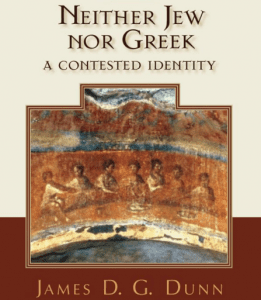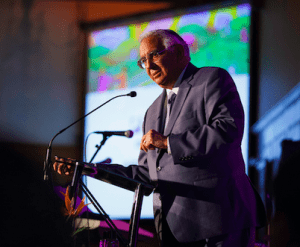The major themes of the Exodus are at the heart of Tom Wright’s new book Simply Jesus: A New Vision of Who He Was, What He Did, and Why He Matters. But there’s more to say than that: Exodus is at the heart of the entire mission of Jesus. Because this Exodus theme is both cut up into its seven segments (more below) and because Exodus becomes more central, it is fair to say that Simply Jesus takes us beyond Tom’s well-known Jesus and the Victory of God. He puts it all together in this book….
 First the seven Exodus themes are tyrant, leader, divine victory, sacrifice, vocation, divine presence, and promised inheritance. This is at the heart of this book.
First the seven Exodus themes are tyrant, leader, divine victory, sacrifice, vocation, divine presence, and promised inheritance. This is at the heart of this book.
Second, Tom sketches how three absolutely crucial (to Jesus and to the apostles) figures of the Old Testament illustrate these seven themes and therefore are instances of carrying forward the Exodus project. The three figures are the Servant of Isaiah 40-66, the Son of Man of Daniel 7, and Zechariah’s king, esp as found in the last half of Zechariah. You will have to take my word for it that he has given us an important sketch of exodus themes here.
Third, now the big one: Jesus’ mission is shaped by those same themes, and so I want to quote from what I think is perhaps the crucial paragraph in this whole book. Remember: it’s Exodus, Exodus from Moses through Isaiah, through Daniel, through Zechariah, and now reshaped and reconfigured for a new day in a new way by Jesus — the three-fold storm converging: Rome, Jewish leaders, and the new message about God becoming king in and through Jesus:
I am going to break the prose into sections so it’s easier to display and read (p. 175):
The tyrant would be not the Jerusalem leaders …, not even Rome …, but all the powers of the Accuser, up to and including death itself.
The leader would be, of course, Jesus himself.
The sacrifice, likewise, would be Jesus himself; that, we must assume, is why he chose to make his decisive move at Passover-time, knowing that it would lead to the death of the firstborn, the beloved son, a hint that he dropped in one of his last parables (Mark 12:6-8).
The vocation would be the vocation he had marked out for Israel in the Sermon on the Mount: going the second mile, turning the other cheek, loving enemies, and praying for them even as they nailed him to the cross.
The inheritance would not, now, be a restored holy land, but the whole world, the uttermost parts of the earth, which had been promised to the Messiah as his inheritance and then promised again to the servant as the realm to which he, through his suffering, would bring God’s justice.
And the presence of Israel’s God would be the presence of Jesus himself, coming to Jerusalem as the embodiment of Israel’s returning God, the fulfillment of Isaiah 40 and 52.
[He doesn’t have the divine victory, but it’s got to be the victory over death in his resurrection and beyond.]











